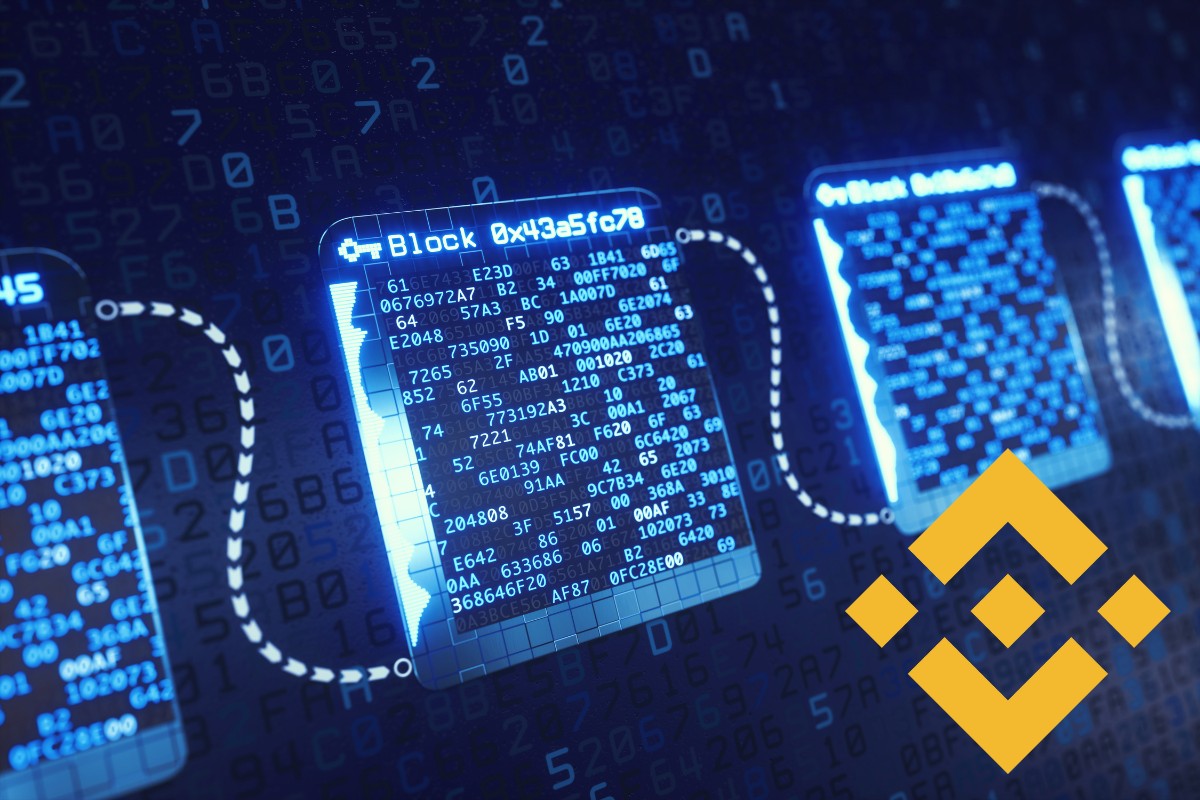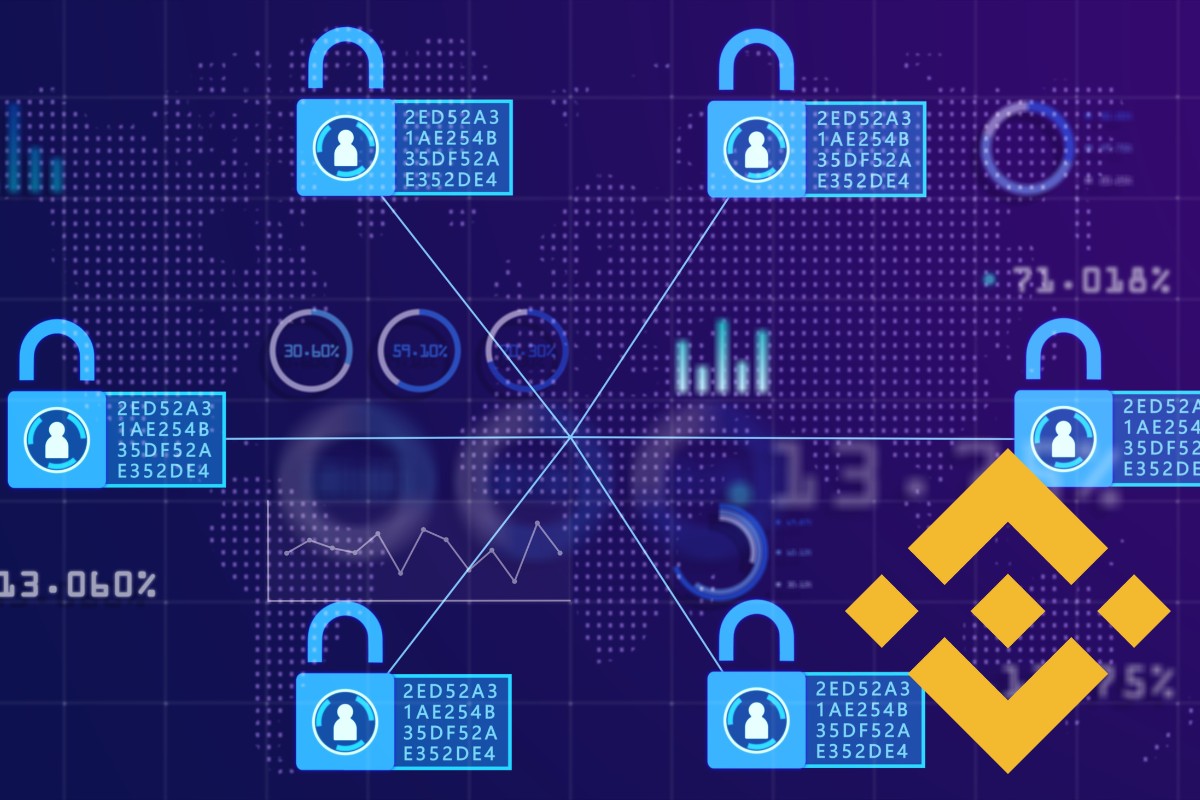If you’re interested in cryptocurrencies, then you’ve probably heard of Binance Smart Chain (BSC), but what is Binance Smart Chain?
BSC is a blockchain network developed by Binance that allows users to build decentralized applications (dApps) and run smart contracts.
It was created to offer a more affordable and faster alternative to other popular blockchains like Ethereum.
BSC is built to be compatible with Ethereum’s Virtual Machine (EVM), which means that dApps and smart contracts created on Ethereum can be easily migrated to BSC.
BSC is also designed to be scalable, with the ability to handle a high volume of transactions at low fees.
This makes it an attractive option for developers looking to build decentralized finance (DeFi) applications, NFT marketplaces, and other blockchain-based projects.
Post Contents
- 1 What is Binance Smart Chain?
- 2 Key Features of Binance Smart Chain
- 3 Binance Smart Chain vs Ethereum
- 4 Binance Smart Chain Tokens
- 5 Decentralized Applications on Binance Smart Chain
- 6 Decentralized Exchanges on Binance Smart Chain
- 7 Staking and Yield Farming on Binance Smart Chain
- 8 Security on Binance Smart Chain
- 9 Binance Smart Chain Wallets
- 10 Community and Governance on Binance Smart Chain
- 11 Binance Smart Chain Ecosystem
- 12 Exploring Binance Smart Chain Tools
- 13 Key Takeaways
What is Binance Smart Chain?

If you’re looking for a blockchain that can run smart contract-based applications, Binance Smart Chain (BSC) is a great option.
BSC is a parallel blockchain to Binance Chain (BC) and was developed to introduce smart contract programmability that was not supported in BC.
BSC offers high transaction capacity and smart contract functionality, giving users the best of both worlds.
Binance Smart Chain is a decentralized cryptocurrency smart contract platform that allows users to swap tokens, earn yield, and participate in decentralized finance (DeFi) applications.
It was launched in 2020 and has been booming with activity ever since.
Binance Smart Chain uses an innovative consensus of Proof of Staked Authority (PoSA) to ensure the security and validity of transactions.
This consensus mechanism allows validators to stake Binance Coin (BNB) to participate in block production and earn rewards.
One of the benefits of using Binance Smart Chain is its compatibility with the Ethereum Virtual Machine (EVM).
This means that developers can easily port their Ethereum-based applications to BSC with minimal modifications.
This has led to a surge in DeFi applications on the Binance Smart Chain, making it a popular choice for developers and users alike.
Key Features of Binance Smart Chain
Binance Smart Chain (BSC) is a blockchain platform that runs parallel to Binance Chain (BC) and is designed to support smart contract functionality.
Here are some key features of Binance Smart Chain that make it stand out from other blockchain platforms:
Dual-Chain Architecture
Binance Smart Chain uses a dual-chain architecture that allows it to support both high throughput and smart contract functionality.
The Binance Chain is used for fast and efficient trading, while the Binance Smart Chain is used for smart contract execution.
This dual-chain architecture allows Binance Smart Chain to achieve high transaction speeds while also supporting complex smart contracts.
Proof of Staked Authority
Binance Smart Chain uses a consensus mechanism called Proof of Staked Authority (PoSA).
PoSA is a hybrid consensus mechanism that combines Proof of Stake (PoS) and Proof of Authority (PoA) to achieve fast block times and high throughput.
PoSA allows validators to stake Binance Coin (BNB) to become validators and participate in block production.
Validators are selected based on their stake, and the more BNB they stake, the more likely they are to be selected as validators.
Cross-Chain Compatibility
Binance Smart Chain is compatible with other blockchain platforms, including Ethereum.
This means that developers can easily port their Ethereum-based smart contracts to Binance Smart Chain without having to make significant changes to their code.
Binance Smart Chain is also compatible with the Ethereum Virtual Machine (EVM), which means that developers can use familiar programming languages and tools to develop smart contracts on Binance Smart Chain.
Ethereum Compatibility
Binance Smart Chain is fully compatible with the Ethereum network, which means that it supports all Ethereum-based tokens and smart contracts.
This compatibility allows developers to easily port their Ethereum-based projects to Binance Smart Chain and take advantage of its high throughput and low transaction fees.
Binance Smart Chain vs Ethereum
If you’re familiar with the world of blockchain, you’ve probably heard of Ethereum.
Ethereum is one of the most popular blockchains in use today, and it’s known for its support of smart contracts.
However, Binance Smart Chain (BSC) has emerged as a strong contender in the blockchain space, and it’s worth exploring the differences between the two.
One of the biggest differences between BSC and Ethereum is their gas fees.
Gas fees are the fees paid to miners for processing transactions on the blockchain.
Binance Smart Chain has significantly lower gas fees than Ethereum, making it a more affordable option for users who want to transact frequently.
Another important difference is block time.
Binance Smart Chain has a faster block time than Ethereum, which means that transactions are processed more quickly.
This can be especially important for users who need to transact quickly or who want to take advantage of arbitrage opportunities.
Both Ethereum and Binance Smart Chain support smart contracts, but they do so in slightly different ways.
Ethereum has its own programming language, Solidity, which is used to write smart contracts.
Binance Smart Chain, on the other hand, supports multiple programming languages, including Solidity and Vyper.
This can make it easier for developers who are already familiar with a particular language to start building on BSC.
Binance Smart Chain Tokens
If you’re interested in Binance Smart Chain, you’re probably curious about the tokens that are available on the platform.
Binance Smart Chain supports two types of tokens: BEP-2 and BEP-20 tokens.
Let’s take a closer look at each of them.
BEP-2 Tokens
BEP-2 tokens are tokens that are issued on Binance Chain.
They are fungible tokens, which means that they are interchangeable with one another.
These tokens are similar to ERC-20 tokens on Ethereum, but they are designed specifically for Binance Chain.
Some of the popular BEP-2 tokens include Binance Coin (BNB), which is the native token of Binance Chain, and other tokens like BTCB, ETHB, and LTCB, which are pegged to the value of Bitcoin, Ethereum, and Litecoin, respectively.
BEP-20 Tokens
BEP-20 tokens are tokens that are issued on Binance Smart Chain.
They are also fungible tokens, which means that they are interchangeable with one another.
These tokens are similar to ERC-20 tokens on Ethereum, but they are designed specifically for Binance Smart Chain.
Some of the popular BEP-20 tokens include PancakeSwap (CAKE), Venus (XVS), and Binance USD (BUSD).
These tokens are used for a variety of purposes, including trading, staking, and providing liquidity to decentralized exchanges.
If you hold BEP-2 or BEP-20 tokens, you can participate in various activities on Binance Smart Chain, such as staking, voting, and earning rewards.
As a token holder, you have the power to influence the direction of the platform and help shape its future.
Decentralized Applications on Binance Smart Chain
Binance Smart Chain (BSC) is a blockchain platform that enables the creation of decentralized applications (dApps) and smart contracts.
BSC is designed to be compatible with the Ethereum Virtual Machine (EVM), which means that developers can easily port their Ethereum-based dApps to BSC with minimal changes.
With Binance Smart Chain, you can build and use a wide range of dApps, including decentralized exchanges (DEXs), yield farming platforms, gaming applications, and more.
Some of the most popular dApps on BSC include PancakeSwap, BakerySwap, and Venus.
Developers can use a variety of programming languages to build dApps on Binance Smart Chain, including Solidity, Rust, and Golang.
BSC also provides a user-friendly interface for developers to interact with the blockchain, making it easy to deploy and manage their dApps.
One of the key benefits of building dApps on Binance Smart Chain is the low transaction fees.
BSC uses a Proof-of-Stake (PoS) consensus mechanism, which means that transaction fees are much lower than on other blockchain platforms.
This makes it easier for users to interact with dApps and for developers to build scalable applications.
In addition to low fees, Binance Smart Chain also provides a high level of security and reliability.
The blockchain is secured by a network of validators who are responsible for verifying transactions and maintaining the integrity of the network.
Decentralized Exchanges on Binance Smart Chain
Binance Smart Chain (BSC) has become a popular platform for decentralized exchanges (DEXs) due to its high transaction throughput and low fees.
In this section, we’ll take a look at two of the most popular DEXs on BSC: PancakeSwap and SushiSwap.
PancakeSwap
PancakeSwap is an automated market maker (AMM) that allows you to trade cryptocurrencies on the Binance Smart Chain.
It is similar to other popular DEXs like Uniswap and SushiSwap.
One of the advantages of using PancakeSwap is that it has significantly lower fees compared to other DEXs on Ethereum.
To use PancakeSwap, you need to connect your Binance Smart Chain wallet to the platform.
Once you’re connected, you can trade cryptocurrencies, provide liquidity, and earn rewards in the form of CAKE tokens.
PancakeSwap also has a lottery system called “The PancakeSwap Lottery,” where users can buy tickets for a chance to win a prize.
SushiSwap
SushiSwap is another popular DEX on Binance Smart Chain.
It is an AMM that allows users to trade cryptocurrencies and earn rewards in the form of SUSHI tokens.
SushiSwap was originally launched on Ethereum but has since expanded to other blockchains, including Binance Smart Chain.
Like PancakeSwap, you need to connect your Binance Smart Chain wallet to SushiSwap to start trading.
SushiSwap also has a feature called “Onsen,” which allows users to earn extra rewards by providing liquidity to specific pools.
Both PancakeSwap and SushiSwap are great options for trading cryptocurrencies on Binance Smart Chain.
They have low fees, high transaction throughput, and offer rewards for providing liquidity.
If you’re looking for a DEX to trade cryptocurrencies, you should definitely check out PancakeSwap and SushiSwap on Binance Smart Chain.
Staking and Yield Farming on Binance Smart Chain
If you’re looking to earn some passive income on Binance Smart Chain, then staking and yield farming are two popular options to consider.
Staking
Staking is the process of holding a cryptocurrency in a wallet to support the security and operations of a blockchain network.
On Binance Smart Chain, you can stake Binance Coin (BNB) to earn rewards and participate in the network’s Proof of Stake (PoS) consensus mechanism.
PoS allows validators to be selected based on the amount of cryptocurrency they hold and stake.
By staking BNB, you can help secure the network and receive rewards in return.
Yield Farming
Yield farming is a way to earn rewards by providing liquidity to decentralized exchanges (DEXs) and other DeFi protocols.
On Binance Smart Chain, there are several yield farming opportunities available.
For example, you can provide liquidity to PancakeSwap, the leading DEX on the network, and earn CAKE tokens as rewards.
Other yield farming options include Venus Protocol, Pancake Bunny, Autofarm, and BakerySwap.
Validators
Validators are responsible for processing transactions, providing computing power and hardware, and maintaining network security on Binance Smart Chain.
There are 21 community validators on the network, and they receive rewards from transaction fees and BNB staking.
By staking BNB, you can also participate in the network’s validator selection process and potentially become a validator yourself.
Security on Binance Smart Chain
When it comes to investing in cryptocurrencies, security is always a top priority.
Binance Smart Chain (BSC) is no exception.
BSC has been designed with security in mind, and there are several measures in place to ensure the safety of your assets.
One of the most significant threats to any blockchain is a 51% attack.
This is where a single entity or group of entities controls more than 50% of the network’s computing power, giving them the ability to manipulate transactions.
However, BSC has implemented measures to prevent 51% attacks from occurring.
For example, BSC uses a consensus mechanism called Proof of Staked Authority (PoSA), which requires validators to stake a certain amount of Binance Coin (BNB) to participate in the network.
This makes it much more difficult for a single entity to gain control of the network.
Another potential threat to the security of BSC is a Byzantine attack.
This is where a group of nodes on the network collude to manipulate transactions.
However, BSC has implemented a slashing mechanism to discourage this type of behavior.
Validators who are found to be colluding will have their staked BNB confiscated, providing a strong financial incentive to play by the rules.
In addition to these measures, BSC has also undergone thorough security audits to identify and address any potential vulnerabilities.
Binance, the company behind BSC, has a strong reputation for prioritizing security and has demonstrated a commitment to reimbursing users in the event of a security breach.
Binance Smart Chain Wallets
If you’re planning to use Binance Smart Chain, you’ll need a compatible wallet to store your assets and interact with dApps.
Here are some of the most popular wallets that support Binance Smart Chain:
Trust Wallet
Trust Wallet is a mobile wallet that supports Binance Smart Chain.
It’s available for both iOS and Android devices.
With Trust Wallet, you can store your cryptocurrencies securely and interact with dApps on Binance Smart Chain.
Trust Wallet also supports other blockchains, including Ethereum and Binance Chain.
MetaMask
MetaMask is a browser extension wallet that supports Binance Smart Chain.
It’s available for Chrome, Firefox, and Brave browsers.
With MetaMask, you can store your cryptocurrencies securely and interact with dApps on Binance Smart Chain.
MetaMask also supports other blockchains, including Ethereum and Polygon.
Binance Chain Wallet
Binance Chain Wallet is a browser extension wallet developed by Binance.
It supports both Binance Chain and Binance Smart Chain.
With Binance Chain Wallet, you can store your cryptocurrencies securely and interact with dApps on Binance Smart Chain.
Binance Chain Wallet also supports other blockchains, including Ethereum.
When choosing a wallet, consider factors such as security, ease of use, and compatibility with dApps.
It’s also important to choose a wallet that supports the cryptocurrencies you plan to store and trade.
Some other popular crypto wallets that support Binance Smart Chain include MathWallet, TokenPocket, and Ledger.
Community and Governance on Binance Smart Chain
One of the key features of Binance Smart Chain (BSC) is its strong community and governance system.
As a user of BSC, you have the opportunity to participate in the governance of the network and have a say in its future direction.
BSC’s governance system is based on its native governance token, Binance Coin (BNB).
Holders of BNB have the ability to vote on proposals and changes to the network.
This ensures that the community has a voice in the decision-making process and can help shape the future of BSC.
The governance process on BSC is transparent and open to all.
Anyone can submit a proposal for consideration, and the community can vote on it.
This ensures that the decision-making process is fair and democratic.
In addition to the governance system, BSC also has a strong community of users and developers.
This community is constantly working to improve the network and create new applications and services on top of it.
As a user of BSC, you can participate in the community in a number of ways.
You can join discussion forums and social media groups to stay up-to-date on the latest developments.
You can also contribute to the development of the network by building applications or contributing to existing ones.
Binance Smart Chain Ecosystem

Binance Smart Chain (BSC) is a blockchain-based ecosystem that brings together various entities such as decentralized finance (DeFi), non-fungible tokens (NFTs), and cryptocurrency exchange within an open-source platform.
It is built on top of the Binance Chain and is designed to be compatible with the Ethereum Virtual Machine (EVM).
One of the key advantages of the Binance Smart Chain ecosystem is its high throughput capacity, which allows for faster transaction processing and lower fees compared to other blockchain networks.
This feature makes it an attractive option for developers and users looking to leverage the benefits of blockchain technology without incurring high costs.
In the Binance Smart Chain ecosystem, users can access a wide range of DeFi applications, including decentralized exchanges, lending and borrowing platforms, yield farming protocols, and more.
These applications are designed to provide users with a decentralized and transparent alternative to traditional financial services.
Additionally, the Binance Smart Chain ecosystem is home to a vibrant NFT marketplace, where users can buy, sell, and trade unique digital assets.
This marketplace is powered by the Binance Smart Chain’s native token, BNB, which is used to pay for transaction fees and other network-related expenses.
To access the Binance Smart Chain ecosystem, users need to create a Binance account and connect it to a compatible wallet that supports the BSC network.
Once connected, users can start exploring the various applications and services available on the platform.
Exploring Binance Smart Chain Tools
Binance Smart Chain (BSC) has been rapidly gaining popularity due to its fast transaction speed and low fees.
In this section, we will explore some of the essential tools available to help you navigate and utilize Binance Smart Chain.
BscScan
BscScan is a blockchain explorer that allows you to view and search data on the Binance Smart Chain. It is similar to Etherscan, which is used for Ethereum.
BscScan provides information on transactions, addresses, contracts, and blocks. You can use BscScan to check the status of your transactions, view your wallet balance, and monitor the activity of a particular contract.
BscScan also allows you to verify the source code of a contract and view its contract address, compiler version, and optimization settings.
This is particularly useful if you want to interact with a smart contract and want to ensure that it is legitimate.
Venus
Venus is a decentralized finance (DeFi) platform built on Binance Smart Chain.
It provides a range of services, including lending, borrowing, and trading of cryptocurrencies.
Venus is similar to Compound and Aave, which are DeFi protocols built on Ethereum.
You can use Venus to earn interest on your crypto holdings by lending them out to borrowers.
You can also borrow funds by using your crypto holdings as collateral.
Venus supports a range of cryptocurrencies, including Binance Coin (BNB), Bitcoin (BTC), and Ethereum (ETH).
Open
Open is a blockchain infrastructure provider that supports Binance Smart Chain.
It provides a range of services, including node hosting, API access, and developer tools.
Open allows you to build and deploy decentralized applications (dApps) on Binance Smart Chain with ease.
You can use Open to set up a Binance Smart Chain node and connect it to the network.
Open also provides a range of APIs that allow you to interact with the Binance Smart Chain, including APIs for transactions, blocks, and contracts.
Key Takeaways
If you’re interested in exploring Binance Smart Chain (BSC), here are some key takeaways to keep in mind:
- Binance Smart Chain (BSC) is a blockchain network built for running smart contract-based applications. It runs in parallel with Binance’s native Binance Chain (BC), which allows users to get the best of both worlds: the high transaction capacity of BC and the smart contract functionality of BSC.
- BSC offers lower fees and faster transaction times compared to other popular blockchain networks like Ethereum. This makes it a popular choice for developers and users looking to build and use decentralized applications (DApps).
- Binance Smart Chain uses a Proof of Staked Authority (PoSA) consensus mechanism, which allows for faster block times and lower fees compared to other consensus mechanisms like Proof of Work (PoW) and Proof of Stake (PoS).
- The native token of Binance Smart Chain is Binance Coin (BNB), which can be used for a variety of purposes within the BSC ecosystem, including paying for transaction fees, participating in governance decisions, and earning rewards through staking.
- Binance Smart Chain has a growing ecosystem of decentralized applications (DApps), including decentralized exchanges (DEXs), yield farming platforms, and NFT marketplaces. These DApps offer users a wide range of options to earn yield or simply to have fun.
Overall, Binance Smart Chain is a promising blockchain network that offers a wide range of benefits to users and developers alike.
Whether you’re interested in earning yield, participating in governance decisions, or simply exploring the world of decentralized applications, BSC is definitely worth checking out.






























